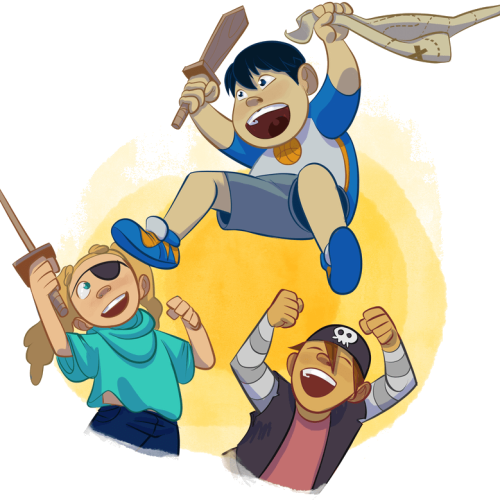The Official Joy Berry Website
Helping Kids Help Themselves
become responsible, happy, and successful
Menu
Menu

JOY BERRY’S PRODUCT RATIONALE
If you spend quality time with children—time where you interact without preset notions or judgment—you’ll likely see what I see. That’s young human beings who want what everyone else wants—to be happy and successful. And if you ask parents what they want for their children, you’ll likely find out that they pretty much want the same things as their kids–only they’d probably add safety and health to the list.
As for me, I want nothing more than to help children and parents get what they want. That’s why I wrote the 250 self-help books for kids. And that’s why I am doing what I am doing today—including the joyberryenterprises.com website.
It’s all about providing the resources that can help your child be safe, healthy, happy and successful.
The whole thing started with the realization that kids are driven to grow and do all of the right things. They just aren’t born knowing how. They need to be taught what behavior doesn’t work and what behavior works better. Once they know this, they are on their way because kids who know better act better.
At the heart of our program is age-appropriate books that deal with age-appropriate challenges–books written directly to children in an easy-to-understand style. Books loaded with fun and entertaining cartoons that are the “spoonful of sugar that makes the medicine go down.” For example, the book about anger defines anger, affirms that is it okay to feel angry, and tells young children exactly how to handle their anger in a positive way.
As children grow up, the books grow up with them by addressing more and more complex subjects.
These books are a parent’s best friend because they take most of the negative out of parenting. Complaining, nagging, fighting just won’t be necessary anymore because everyone will be on the same page, working for the same things.
The entire collection of materials is organized around a developmental grid that begins with 1 year olds and continues through to 12 year olds. The subjects, as well as the sequence in which they are presented, are based on universal milestones that occur in every child’s life. The milestones are organized into the four stages that every child grows through in order to reach adolescence.
THE DEVELOPMENTAL ORGANIZATION OF LIVING SKILLS
Level One products are for ages 1 – 3. The purpose of these materials is to begin transferring the responsibility for a child’s life from the parent to the child.
Level Two products are for ages 3 – 5. The purpose of these materials is to help children handle early childhood emotions and challenges in positive ways.
Level Three products are for ages 5 – 7. The purpose of these materials is to help children deal with early childhood misbehavior.
Level Four products are for ages 7 – 9. The purpose of these materials is to teach children the Living Skills they need to be personally and socially responsible.
Level Five products are for ages 9 – 11. The purpose of these materials is to teach children the Survival Skills they need to meet their own expectations as well as the reasonable expectations of others.
Level Six products are for ages 11 – 13. The purpose of these materials is to teach children how to overcome obstacles, organize their lives, and be successful on every level.
THE IMPORTANCE OF RAISING RESPONSIBLE CHILDREN
1. The root cause of the world’s major problems is irresponsible people (people who behave in unintelligent, untrustworthy ways). These people create difficult and sometimes detrimental situations for themselves and others.
2. The first step to solving all the world’s major problems is to raise children who are
- responsible for themselves,
- responsible in their relationships with others, and
- responsible in the way they relate to the things in their environments.
OVERCOMING THE OBSTACLES TO CHILDREN BECOMING RESPONSIBLE
1. Children do not naturally assume responsibility for themselves. They are often quick to blame others and seldom assume the responsibility for things going wrong.
2. Children do not naturally assume responsibility in their relationships with others. This is exemplified in the predominance of all-take-and-no-give parent-child relationships in which children expect to receive everything from their parents and give nothing in return. It is also exemplified in the predominance of all-take-and-no-give teacher-student relationships in which children expect to be educated without reciprocating in any way.
3. Children do not naturally assume responsibility for the way they relate to the things in their environment. They are more likely to overindulge in anything that promises immediate pleasure or gratification. This includes things like junk food, TV, and the never-ending onslaught of fads promulgated by other forms of entertainment and advertising.
4. Parents often feel inadequate and guilty about dealing with their children’s irresponsibility. They often lack the information and skills that are needed to raise responsible children, and they feel guilty when they are unable to do so.
5. Children are the key factor in their becoming responsible. It is futile to tell parents “your children need to do this and that,” when it is children, not parents, who need to implement the behavioral changes. Thus, children need to realize that they are ultimately responsible for their lives, and although they cannot always control what happens to them, they can control how they respond to what happens.
LIVING SKILLS AND SELF-HELP MATERIALS
1. Because children need to become responsible and because they are not naturally inclined or equipped to do so, they need to acquire basic Living Skills. Living Skills are the skills every person needs in order to live life intelligently and responsibly.
2. Unfortunately, Living Skills are not something children instinctively develop. Unlike motor skills such as reaching, grasping, crawling, and walking, Living Skills cannot be developed as a result of inherent neurological processes. Like academic skills, they can’t be learned without external, instructional input. Living Skills are best learned though the use of self-help materials that present the subject matter in a simple, clear way that children can understand.
TEACHING CHILDREN LIVING SKILLS
1. Exactly what Living Skills should be taught to an individual should be determined by the following factors:
- The skill should relate to an issue that the person encounters frequently, and
- The skill should be important to the person.
2. Exactly when a particular Living Skill should be taught to an individual should be determined by the following factors:
- The developmental needs and interests of the person, and
- The environmental influences that are impacting the person’s life.
3. In order for Living Skills materials to be effective, they need to accomplish the following:
- Define the issue that needs to be addressed,
- Explain how the issue affects the person and the people around him or her,
- Provide clear guidelines that can help the person make the issue a positive rather than negative factor in his or her life, and
- Motivate the person to follow through with the guidelines.
Menu
Copyright © 2024 Joy Berry Enterprises. All Rights Reserved.


